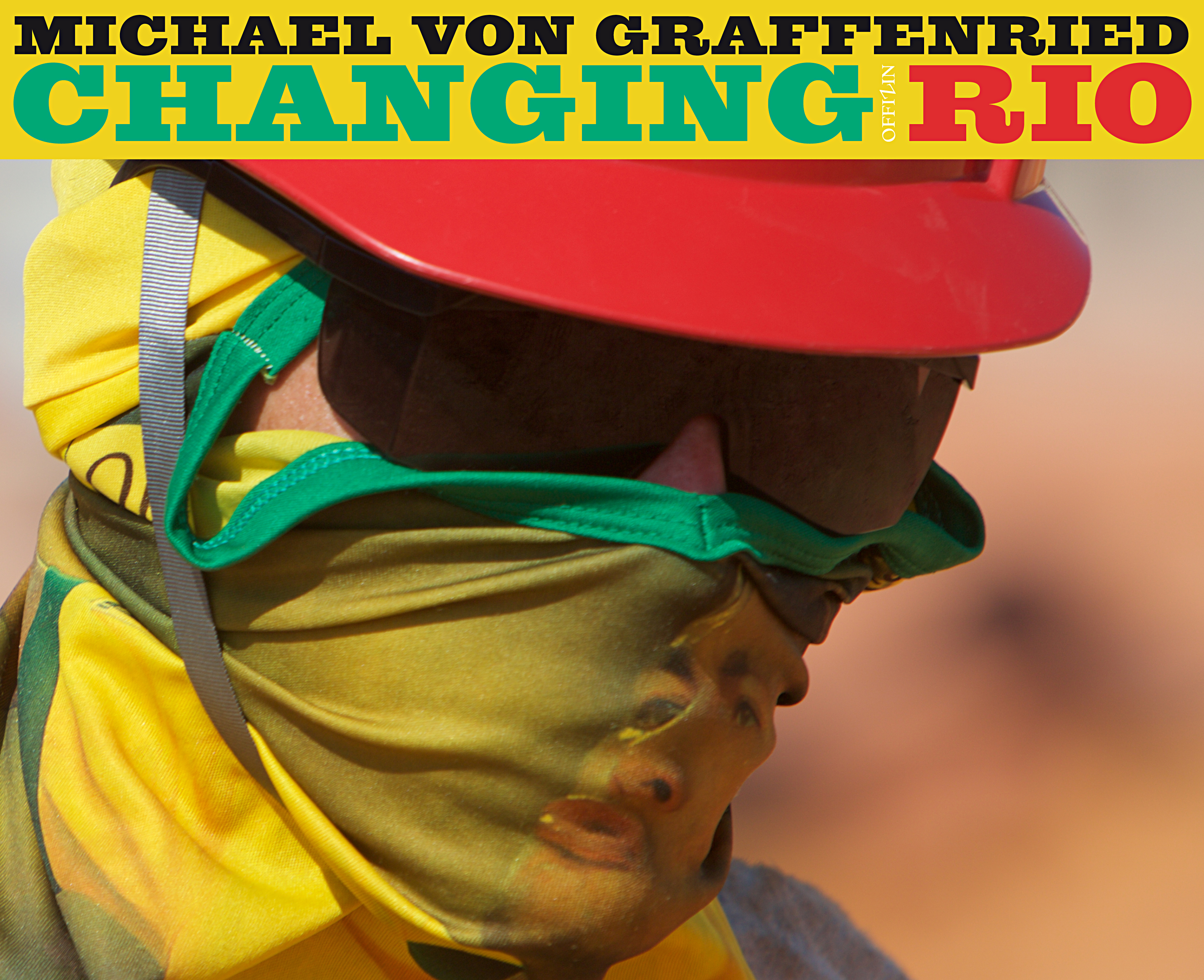Michael von Graffenried is what one might call a global photographer. He has projects from all over the world, slowly translating different worlds and lives into photographs. From Bern, Switzerland, he started out taking candid photos of the Swiss Parliament. His first major global work is from Algeria, where he went to document the civil war with a panoramic camera held at his waist. He has also taken photos in Egypt, India, New York, Germany, and many more. He works between Bern, Paris, and Brooklyn.
***
AR: You’ve done a lot of work with candid photos. What do you think is the advantage of that when you’re in a foreign country?
MVG: I don’t think it has to do with the foreign country, I think that the human being is different if he knows that he’s being photographed than if he doesn’t know that he’s being photographed. People behave differently when they know. Today, when you take up a camera, everyone knows it’s there. I like the real situation. People act differently, without the interference of the photographer. You have to be quick, and you have to be discreet. The best thing is not to put the camera in front of your eye, because then if even if they see the camera, they could think it’s at rest. That’s why the camera is only on the belly, because people can’t imagine that you could shoot blindly. With the rise of the digital camera and cameras on phones, shooting blindly is more common. But in 1991 and in Algeria, nobody thought I could shoot like that.
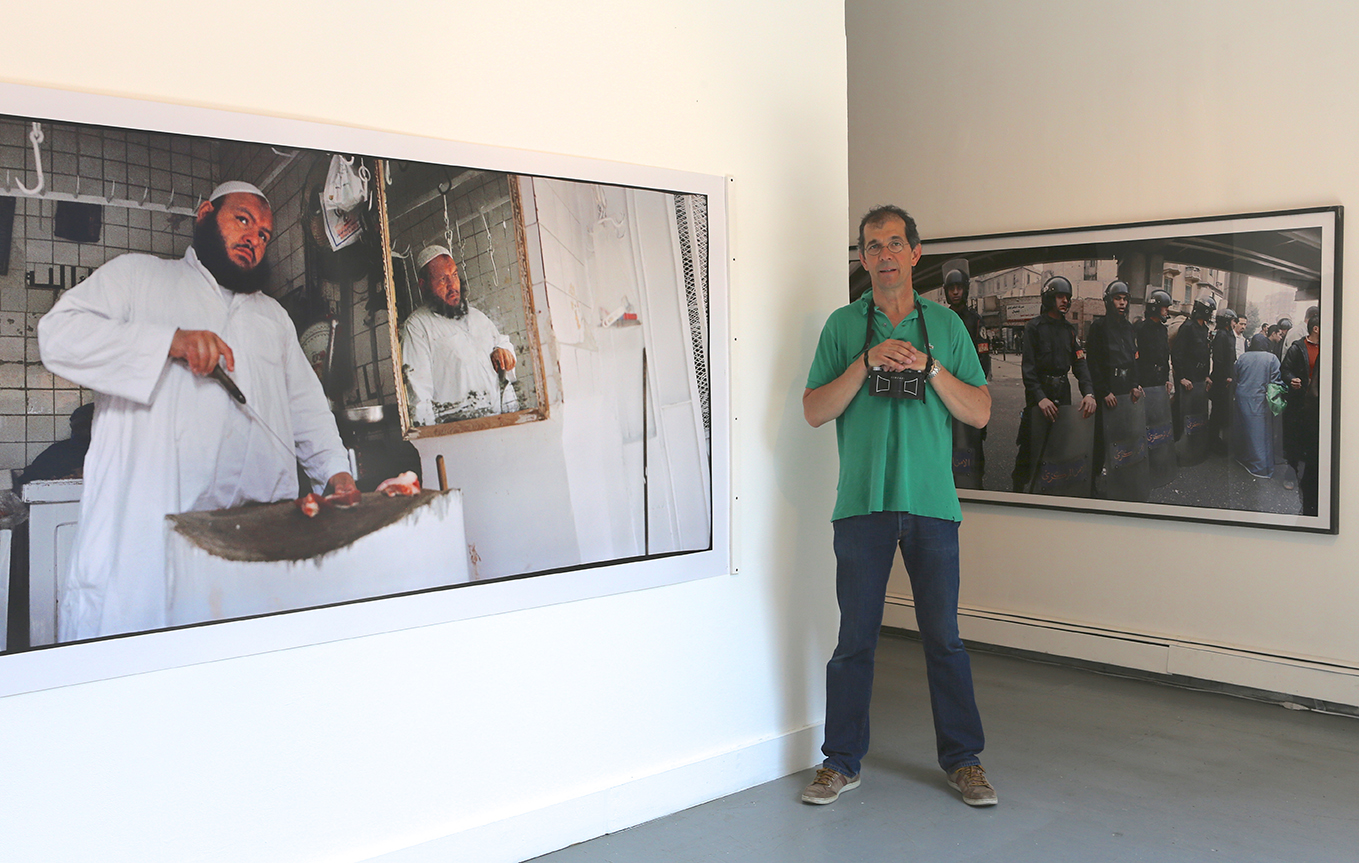
I do this because I think the photographs that you see today, in the magazines and everywhere, they are all staged. And not only that, they are treated after being taken. In addition, after the photographs treated, people also change themselves with plastic surgery. It makes an inaccurate depiction of our time, and I think as a photographer or an artist that I should work against that.
AR: What was the biggest challenge you had to face abroad while taking photos?
MVG: Good question, there’s always a challenge. Let’s try an example. The first challenge is to lose your fear when you approach someone. You can’t be shy. You have to fight that. The cure to shyness is curiosity. It helps you approach others in other situations. I use my camera for that. If there are two people sitting on a bench, you can approach them and ask to take their photo. Even if it’s not a good photo, you now have a reason to talk to people.If you want to go see inside the butcher’s house, if you have a camera or a journalist, you have a way in.
The challenge after is that you have to adapt to the situation. For example if you go to Algeria you have to eat with everyone, you have to pray with everyone. The challenge could be going to a nudist colony, like what I did in Naked in Paradise. You have to go live with them, adapt to the situation. If I’m in a nudist, I behave like a nudist. If I go into war, I behave like a soldier. If you stay discreet, then you can make real pictures. My interest is to get the situation as it is, and so my challenge is that I have to adapt to it.
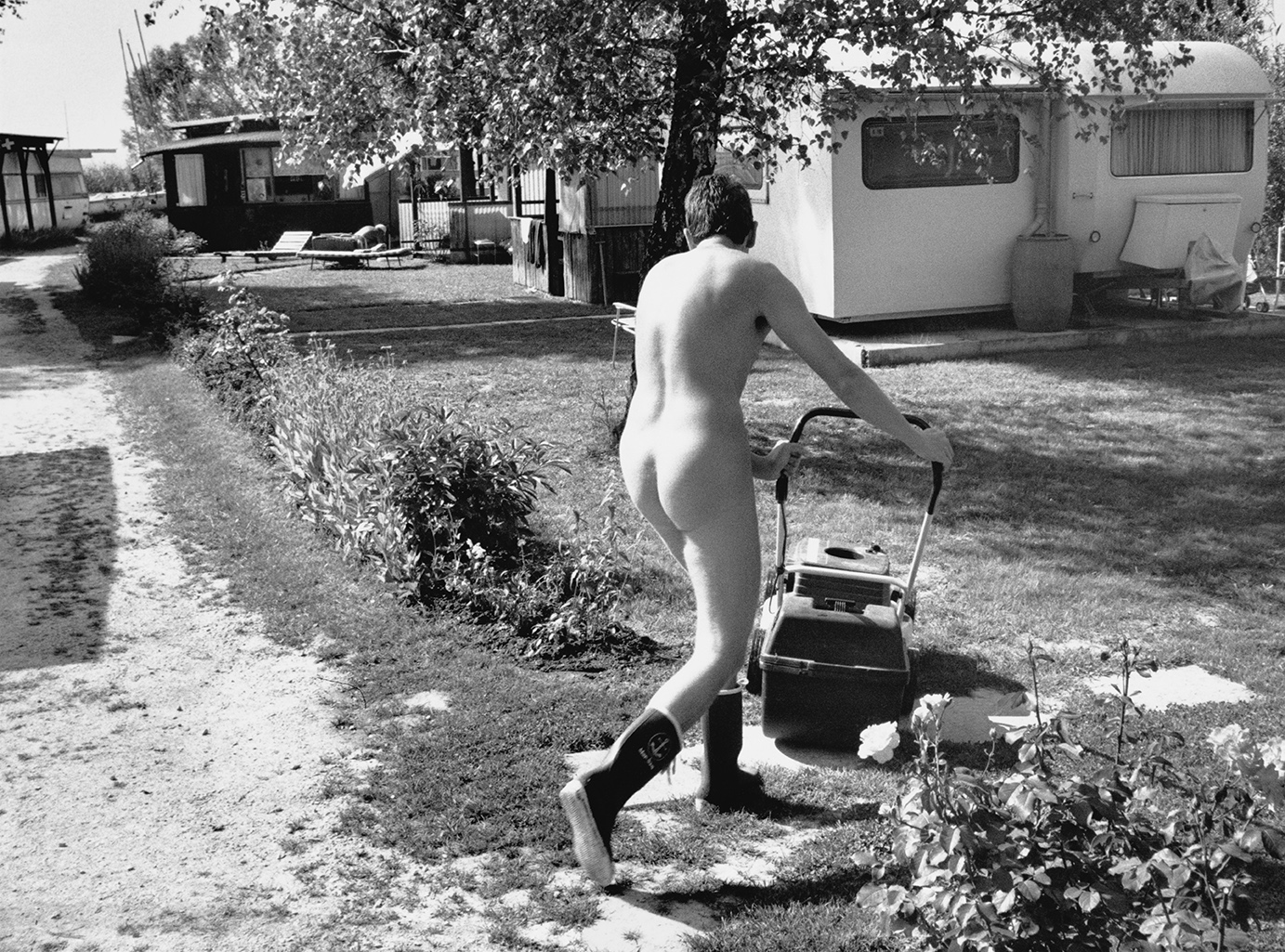
AR: When you were in Algeria, was there a message you were trying to send to the western world, and if so, what was it?
MVG: That’s always the question. I’m not a messenger. I don’t want to influence anyone. I think the human being tends to not look carefully to reality. It’s easier for us to see things we don’t want to see. As a photographer, I want to show people things that they don’t want to see. We can only change our situation if we see it as it truly is, accept it, and that’s a step within itself. Then maybe we can change what’s going on for the better. My only mission is to show people what’s going on.
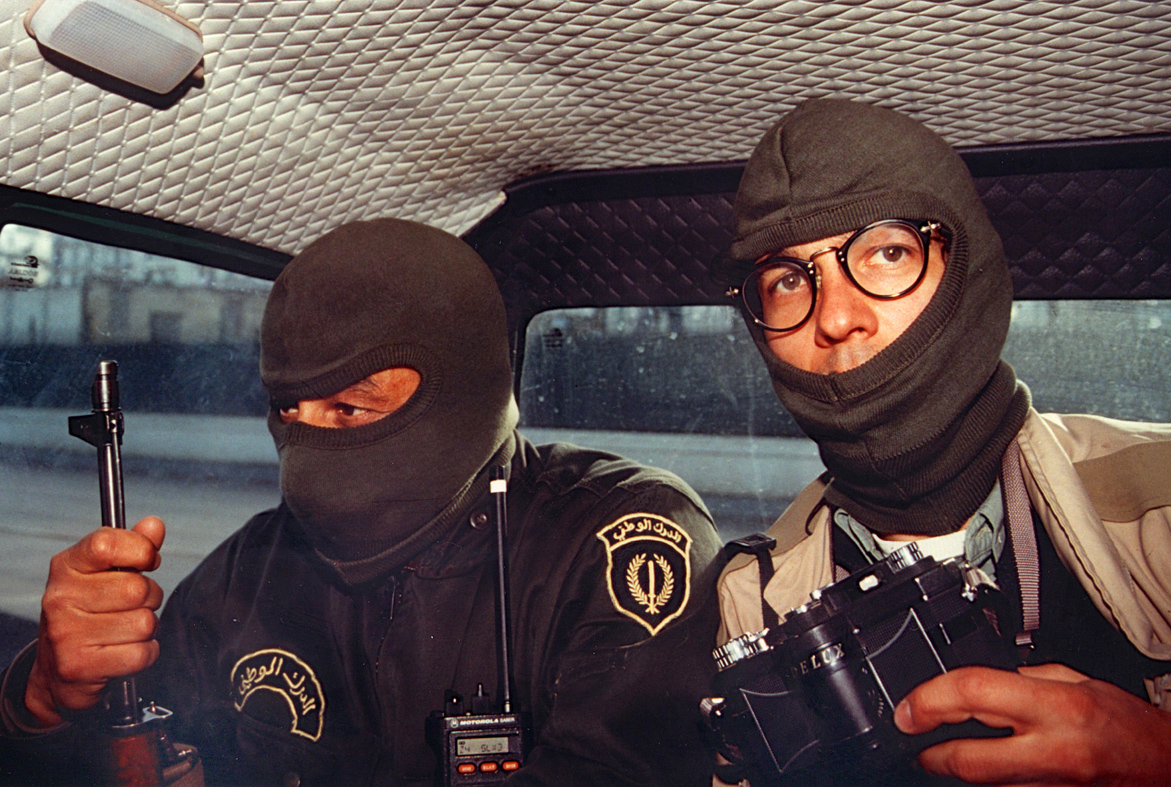
AR: What is your current project?
MVG: The last project I did was Bierfest in Munich: 9 million liters of beer, 9 million people, 14 days. People go and get drunk, and I wanted to show it as it is. It can be crude and there are deaths every year, but the government tolerates it because it’s good for tourism and the economy of the region.
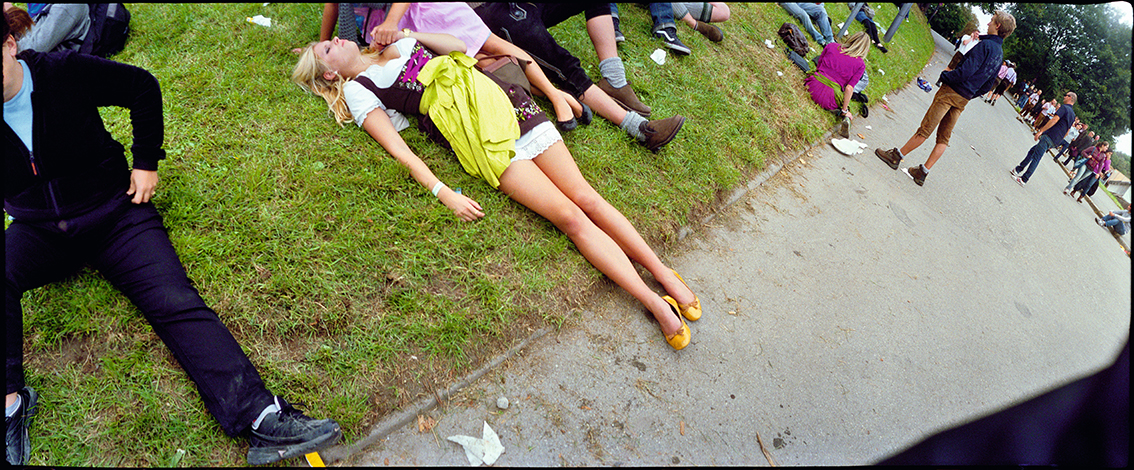
That was my previous project. My new project is about Rio de Janeiro. It’s called Changing Rio. I got the opportunity to go there recently. There are a lot of clichés about it: Copacabana and whatnot. But it’s a huge city, with a lot of favelas and poor people. And it’s in a developing country.Two years ago, they had the World Cup and now this summer in August they’ll host the Olympic games. These initiatives are to boost the city. They are rebuilding the city. They’re building new roads, tunnels, subways, cable cars. So now Rio de Janeiro is one huge construction site. The dream is to boost the development of the city. I’m trying to have a look at the city in this moment when they all believe things will change, but no one is sure. After the games are over, will people still have jobs? No one knows. It happens in a lot of Olympic cities: Sochi and Athens are both examples of that. Barcelona is a better example, as the Olympics had a lasting and positive effect on the economy. I’m trying to document this moment of possible change. I’m a bit like a plant, I put down roots somewhere and then I see what grows.
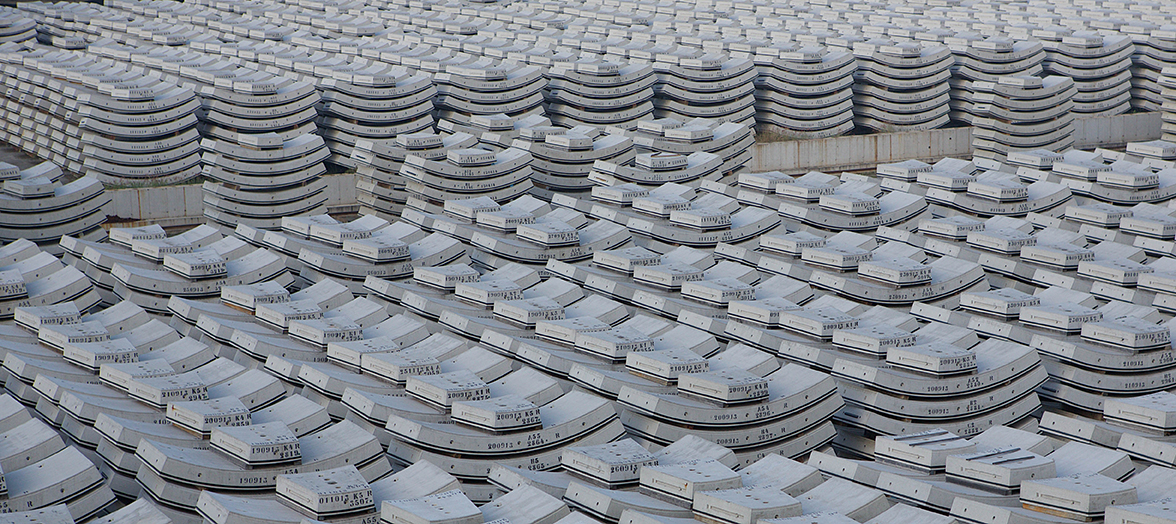
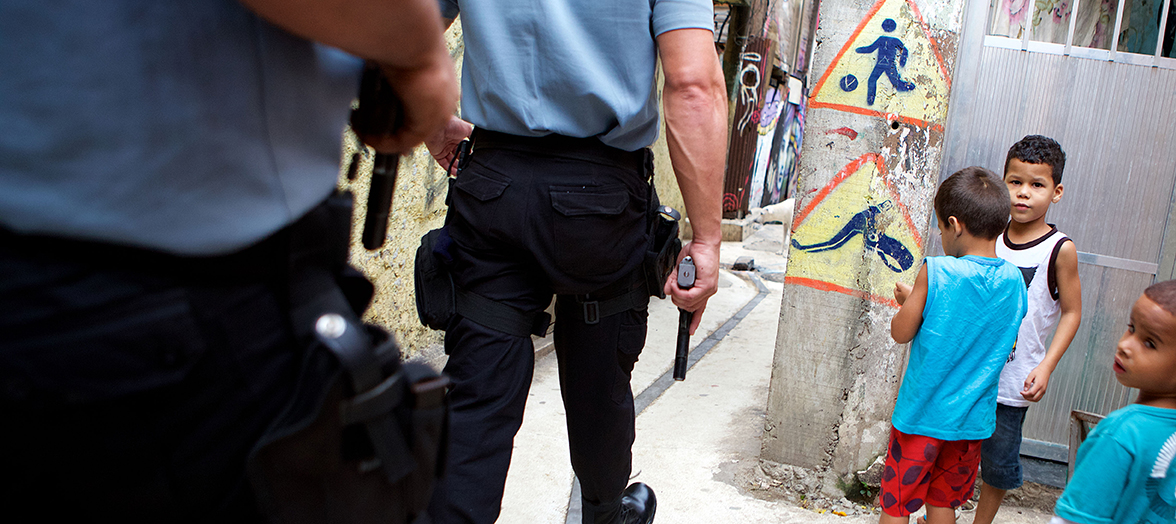
AR: Do you think the medium of photography captures something that other genres of art cannot? If so, what do you think that is?
MVG: I don’t think so. I think photography is just a tool to express something. I can’t write. I express myself better with images. I think photography is another way to express what I want to say. It’s not any different from other genres.
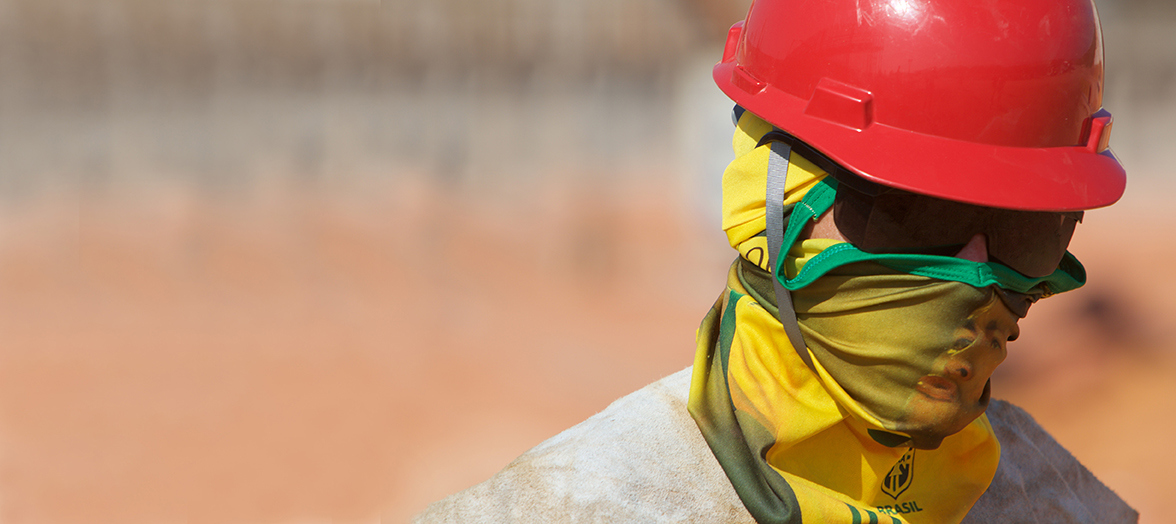
*****
Learn more about Michael von Graffenried on his website. His latest book, Changing Rio, will be published in June.
Read more Interviews:

